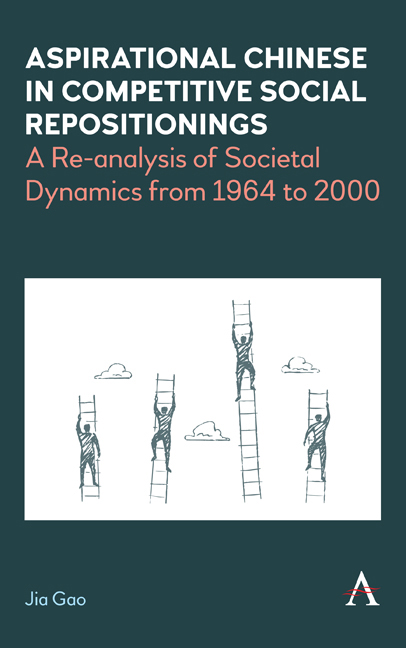 Aspirational Chinese in Competitive Social Repositionings
Aspirational Chinese in Competitive Social Repositionings Book contents
- Frontmatter
- Contents
- List of Abbreviations
- List of Figures
- List of Tables
- Preface and Acknowledgements
- One The Absence of Everyday Chinese in the Dichotomous Paradigm
- Two Rebranding the Communist Heir Narrative and the Cultural Revolution
- Three Tearing the Utopian Veil Down By the Sent-Down Youth
- Four Crying Out for Changes in the Second Half of the 1970s
- Five Battling for the Advantages Under the Dengist Political Alliances
- Six Climbing Different Social Ladders From the Mid-1980s
- Seven Filling in the Post-1989 Vacuum Left By Educated Liberals
- Eight Seizing Chances to Be Entrepreneurial in Post-1992 China
- Nine Towards a Theory of Competitive Social Repositioning
- References
- Index
Five - Battling for the Advantages Under the Dengist Political Alliances
Published online by Cambridge University Press: 28 February 2024
- Frontmatter
- Contents
- List of Abbreviations
- List of Figures
- List of Tables
- Preface and Acknowledgements
- One The Absence of Everyday Chinese in the Dichotomous Paradigm
- Two Rebranding the Communist Heir Narrative and the Cultural Revolution
- Three Tearing the Utopian Veil Down By the Sent-Down Youth
- Four Crying Out for Changes in the Second Half of the 1970s
- Five Battling for the Advantages Under the Dengist Political Alliances
- Six Climbing Different Social Ladders From the Mid-1980s
- Seven Filling in the Post-1989 Vacuum Left By Educated Liberals
- Eight Seizing Chances to Be Entrepreneurial in Post-1992 China
- Nine Towards a Theory of Competitive Social Repositioning
- References
- Index
Summary
The social consequence of the change to the central leadership in certain authoritarian systems is, to a great extent, similar to that of regime change. Both could lead to the abrogation of power and privileges of some people and the creation of new opportunities for others. As pointed out in Chapter four, a number of political obstacles were swiftly removed in response to the demands made by hundreds of thousands of people in the 1976 Tiananmen Incident. Apart from a small group of radical leftists, including the Gang of Four, who were politically dumped or punished, the vast majority of people were happy to see a time for changes both in their personal life and in society more generally. The latter was clearly seen in rural villages, where the rigid rule of organising rural production was relaxed, with the politically incorrect activities of selling and buying surplus agricultural produces. In the cities, as analysed in Chapter four, many people's attention was drawn to the renewed university entrance system, which not only provided young people with a chance to study at university, but also relaxed some related restrictions.
These new social dynamics slowly transformed the rest of the late 1970s and early 1980s into a situation where more people from different backgrounds or political persuasions were allowed to try to position, or reposition, themselves in their anticipated places in society, but also to conduct it in their own ways and capabilities. Such new massive-scale social repositionings, in turn, transformed the conditions of social actions and performances of individuals, and the dynamics of their social positionings as well. The latter was characterised by an increasing number of highly motivated citizens and their attempts for the advantages under the Dengist leadership.
This chapter analyses to these changes and people's new repositioning efforts in the early years of China's post-Mao reform and opening up, which started in 1978. To help readers understand the social conditions of people's repositioning, a few more general changes need to be taken into consideration. Within the first few years, numerous Chinese had opted to throw themselves in the new, open and competitive societal environment generated by many new measures before reforms run into their first momentous trouble in the mid-1980s, which was a small but meaningful turning point in our examination.
- Type
- Chapter
- Information
- Aspirational Chinese in Competitive Social RepositioningsA Re-Analysis of Societal Dynamics from 1964 to 2000, pp. 93 - 116Publisher: Anthem PressPrint publication year: 2023


